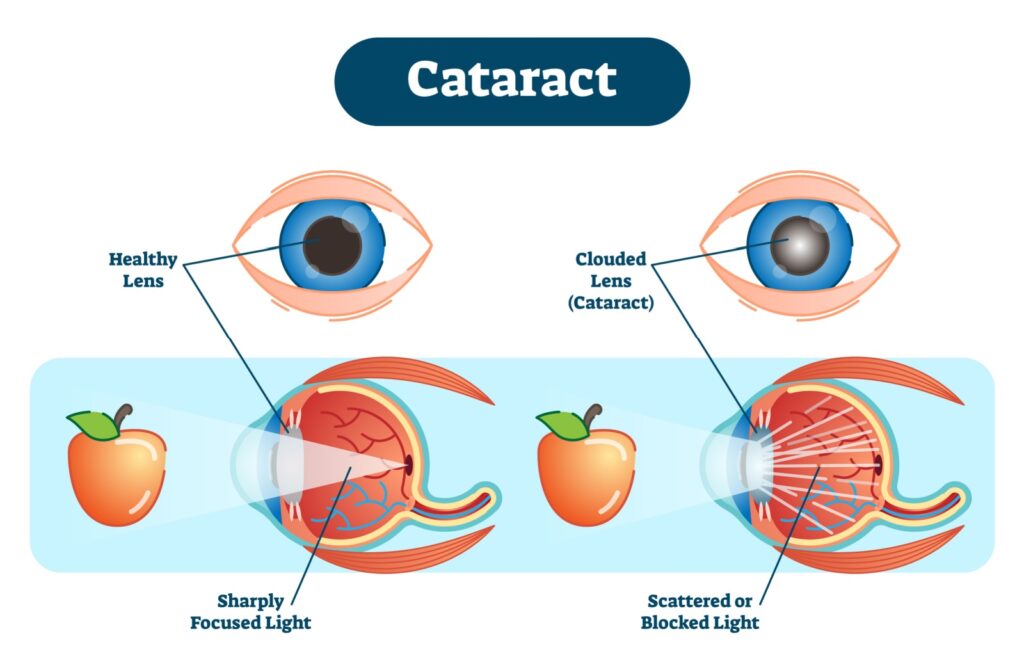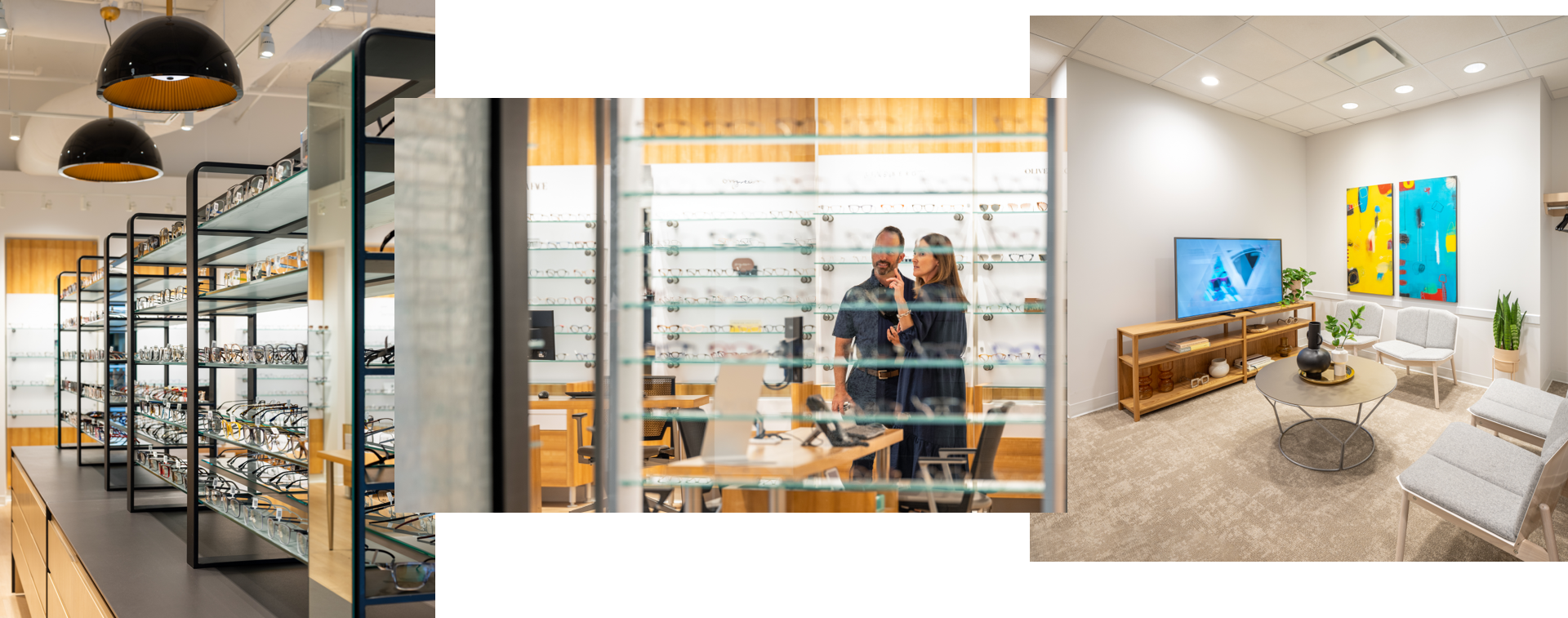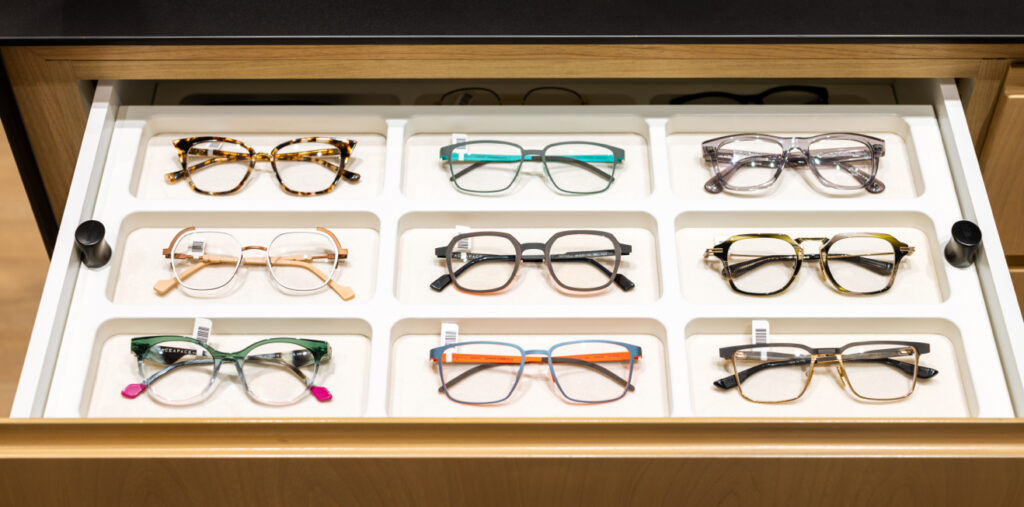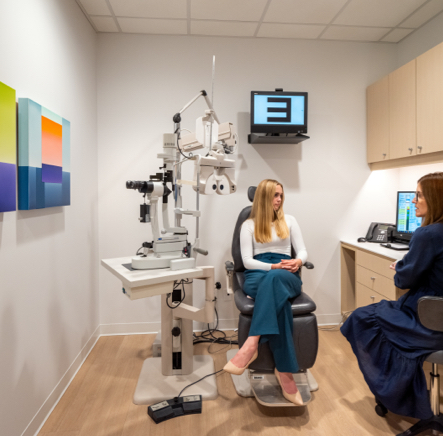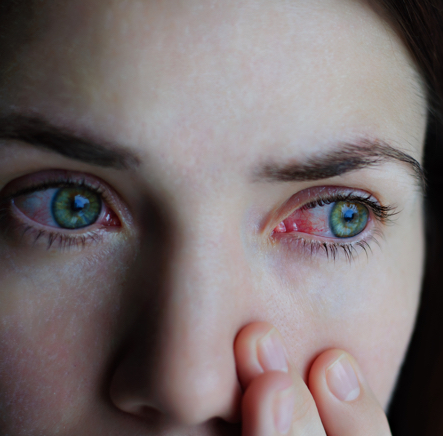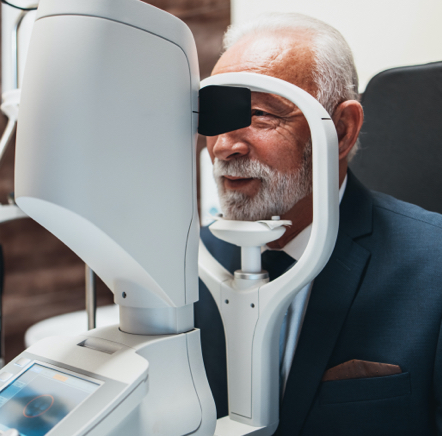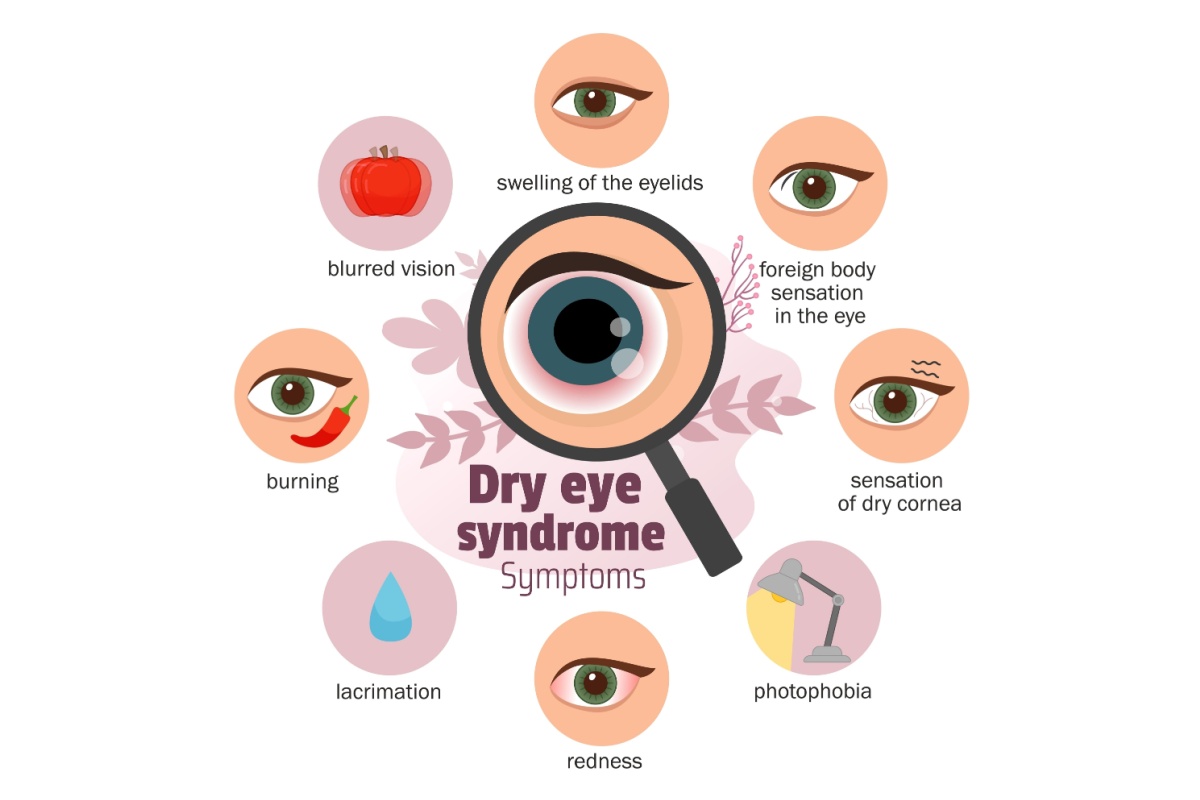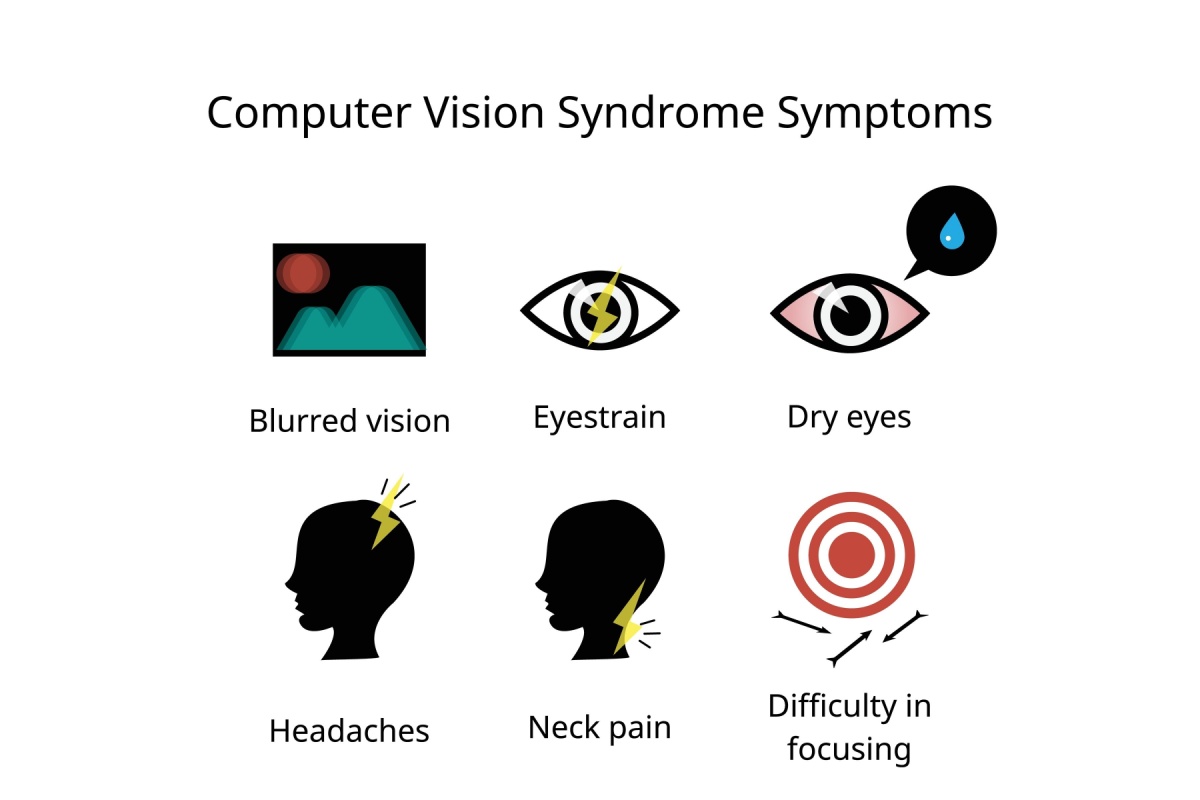Cataracts can significantly impact your quality of daily life—including your nightlife. For those with cataracts, heading out after sunset can feel a little more challenging. Streetlights may seem hazier, headlights may have a sharper glare, and once-clear views may now appear dim and blurred.
Cataracts affect night vision by clouding the eye’s natural lens, which scatters and blocks light, reducing contrast and making it harder to see in low-light conditions. However, help is available. With a comprehensive eye exam, we can make recommendations for improving your vision and help you decide whether cataract surgery or another form of intervention is needed.
What Are Cataracts?
Cataracts are when the lens in the middle of our eye becomes cloudy, and then opaque.. Your eye’s lens normally focuses light on the retina at the back of your eye. Proteins in your eye naturally break down as you age, causing it to lose its clarity over time.
Your risk of developing cataracts can increase with age, exposure to UV rays, and certain health conditions, such as diabetes. Cataracts progress slowly in most cases, often starting with minor vision changes that can eventually lead to more noticeable blurring.
If you have cataracts, you are not alone. They are one of the most common causes of vision loss in Canada. Help is available for correcting your vision, and with surgery, you can replace your clouded lenses with new, artificial lenses.
Why Do Cataracts Seem Worse at Night?
While the effects of cataracts occur all day, they can be especially noticeable in low-light conditions because our eyes tend to struggle to capture light already in those conditions. When your pupils dilate (become wider) trying to let more light in, that simply gives the lens more light to scatter—and there’s only so much our eyes can do to accommodate those issues.
Signs Your Night Vision Might Be Affected by Cataracts
If you have noticed issues with your night vision, it is important to pinpoint whether cataracts may be the cause, as there are many other conditions that can affect low-light vision.
Here are some common cataract symptoms:
- Halos around lights: Scattered light from cataracts can make street lights appear surrounded by rings or haloes.
- Glare sensitivity: Sensitivity to bright lights, especially headlights, can make night driving stressful and difficult.
- Cloudy or hazy vision: Cataracts often cause a general blurriness or a feeling of looking through a foggy window.
- Double vision: A clouded lens can distort the way light is refracted, leading to double vision.
- Frequent changes in prescription eyewear: If you seem to constantly need new glasses or contact lenses, that could indicate that cataract progression is changing how your eyes focus light.
- Fading or yellowing of colours: Colours may appear less vibrant or lose their brightness, often taking on a yellowish hue.
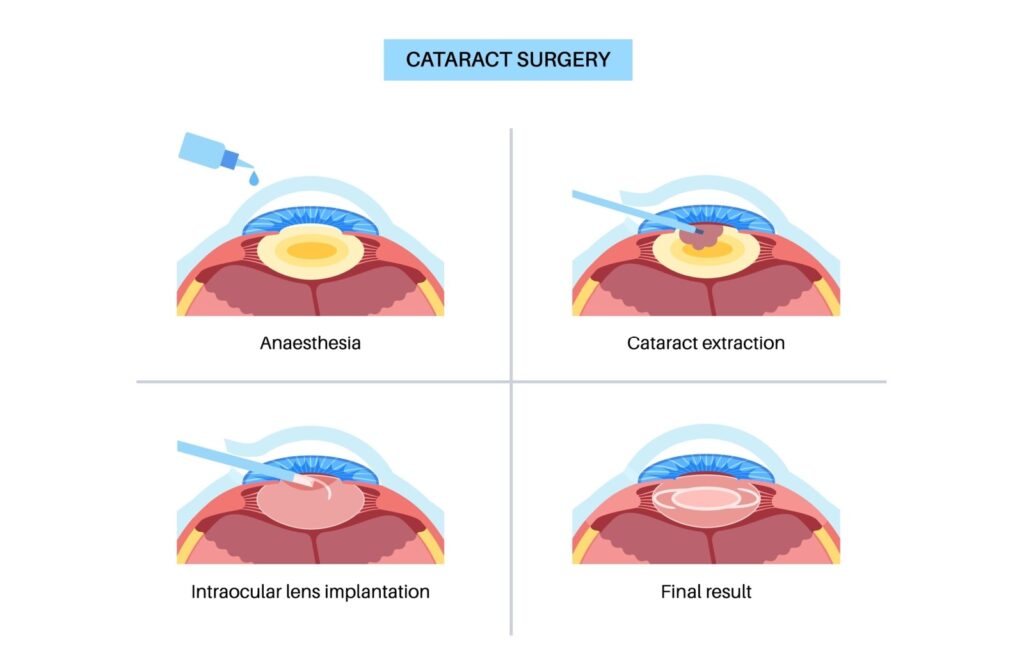
How Optometrists Diagnose & Treat Cataracts
Cataracts are often diagnosed through a routine eye exam. When you visit us, we can use diagnostic tools to detect changes in your lenses and overall vision at their early stages. This is why regular eye exams are essential—even if you’re not experiencing symptoms related to night vision, those routine checkups can help you stay ahead of any changes—and stop them from getting worse.
How Are Cataracts Treated?
Early-stage cataracts may require simple lifestyle changes, such as adjusting the lighting in your home or using anti-glare coatings on prescription lenses. We may be able to help you update your prescription to accommodate the vision changes caused by cataracts.
As the condition worsens, surgical intervention becomes the only effective solution. Cataract surgery involves replacing the cloudy lens with an artificial intraocular lens (IOL), which can restore clarity and improve both day and night vision. It’s done as an outpatient procedure and you don’t have to stay overnight in a hospital.
This procedure is considered one of the safest and most successful surgeries in modern medicine, and it can provide long-term visual improvement for almost all patients.
Tips for Managing Cataracts & Enhancing Night Vision
While you are waiting for cataract surgery or exploring treatment options, there are practical steps you can take that may help you manage cataracts and even temporarily enhance your night vision.
Try the following tips:
- Use adequate lighting: Bright and strategically placed lighting in your home can make moving around at night easier.
- Adjust your driving habits: Avoid nighttime driving when possible, especially on unfamiliar roads or in areas with heavy traffic.
- Protect your eyes from sunlight: Wear high-quality sunglasses that block 100% of UVA and UVB light to shield your eyes from damaging sunlight and reduce the risk of cataract progression.
- Quit smoking: Smoking can accelerate the development of cataracts, so quitting is a crucial step toward protecting your vision and overall health.
- Manage other health conditions: Managing other health conditions, such as diabetes and high blood pressure, can help maintain your eye health and prevent complications.
- Adopt a healthy diet: Nutrient-rich foods, particularly those high in antioxidants and omega-3 fatty acids (leafy greens, colourful vegetables, fatty fish), support eye health and may slow cataract progression.
- Regular eye care: Keep up with your routine eye exam appointments to monitor the progression of your cataracts and ensure your prescriptions remain current.
A proactive approach can help you maintain a sense of control while ensuring your vision remains as clear as possible.
Clear Vision Starts with Proactive Care
Night vision challenges caused by cataracts can feel overwhelming, but with the right diagnosis and management strategy, it’s more than possible to regain clarity and confidence. Whether your goal is to enhance your comfort during evening drives or maintain your independence at home, Downtown Vision Care is here to provide guidance.
Book your appointment today.


